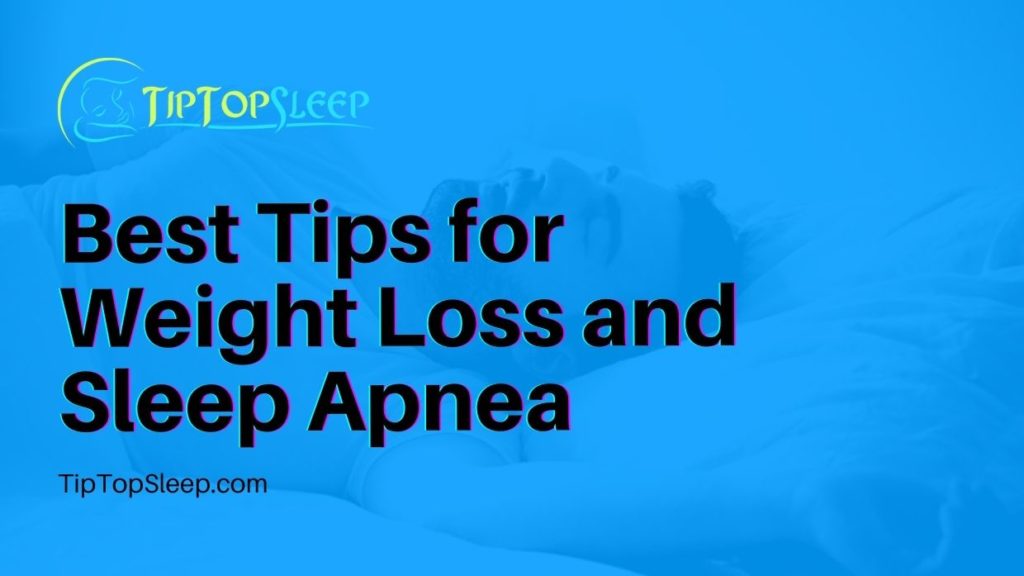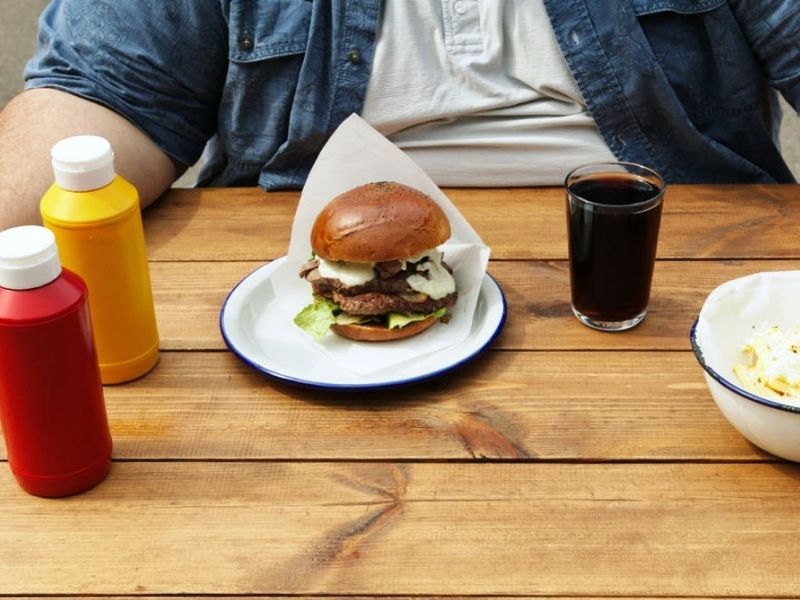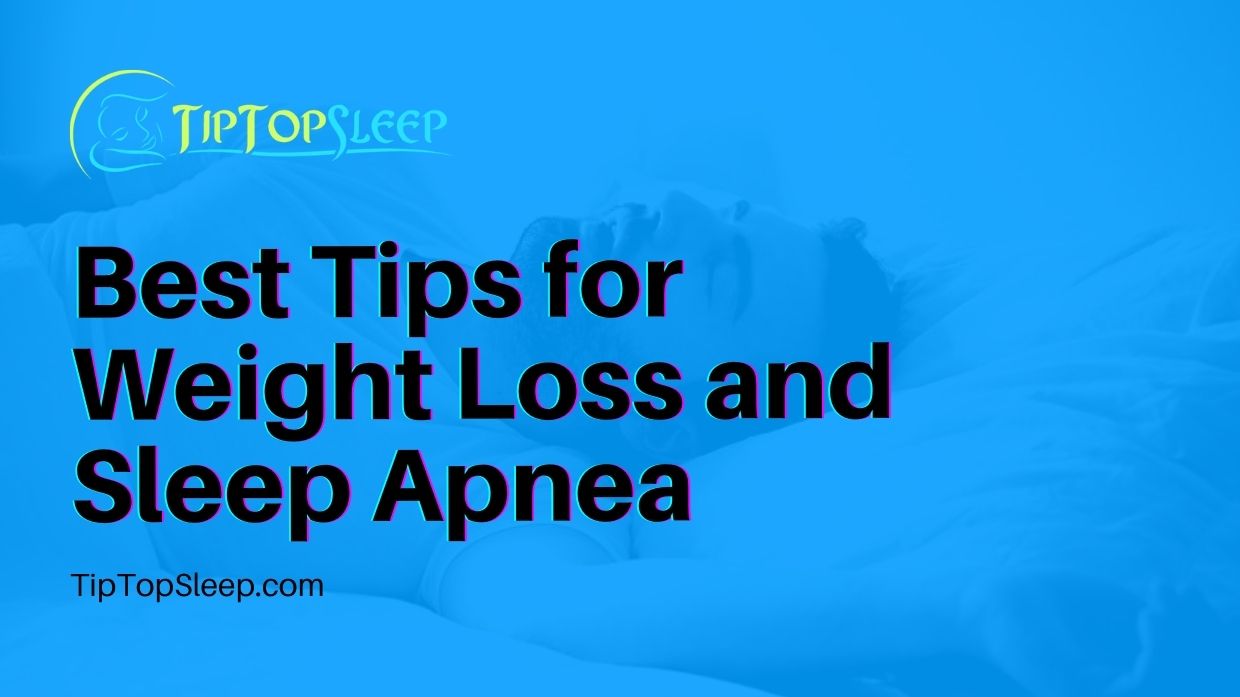According to studies, weight loss and sleep apnea are linked with each other. Experts say that losing unnecessary fats could be a solution to manage the symptoms.
If you must know, one of the factors for obstructive sleep apnea is obesity. When we say obstructive sleep apnea, it refers to a severe condition where a person stops breathing for short periods while sleeping. And this could happen multiple times per night.
If you think you might be suffering from this, do not waste time. Seek professional help so you could be treated right away. Unlike other diseases, sleep apnea is not a hopeless case.

Symptoms of Sleep Apnea
Make it a habit to evaluate the quality of your sleep and your sleeping habit as well. Watch out for these symptoms:
- Sleepiness during the day
- Decreased libido
- Irritability and mood changes
- Headache in the morning
- Dry mouth or sore throat in the morning
- Snoring loudly
- High blood pressure
- Sweating at night time
Obesity and Sleep Apnea
When extra tissue piles up around the upper airway, it could alter its shape and cause blockages. Also, the added weight could make the throat collapse while sleeping.
Statistics show that half of the patients suffering from sleep apnea are considered overweight or obese.
Studies on Weight Loss and Sleep Apnea
A study including 60 obese and overweight adult men suffering from moderate to severe sleep apnea underwent a liquid diet for 90 days. On average, they lost 40 pounds. By the end of the period, they noticed an improvement of 58% among the participants. They’ve seen that the occurrence of sleep apnea decreased by 21 per hour.
Based on the study, patients with severe apnea showed the most significant improvements. The same goes for those who lost the most weight.
When the participants gained weight, a 47% improvement was still recorded. In fact, 10% of the patients are not required to have CPAP treatment anymore. This specific treatment will be discussed in the latter part of this article.
Is Extreme Diet Necessary?

When trying to lose weight to combat sleep apnea, there’s no need to undergo an extreme diet. Those who take a more conservative approach could also reap the same benefits in managing the symptoms of the disorder.
Generally, you should lose 10% of your body weight to see the difference in your condition. The significant amount of weight you lose, the better. And in fact, it could cure sleep apnea.
Weight Loss and Sleep Apnea
Since many fad diets are circulating online, we find it fitting to emphasize the best diets for people with sleep apnea. Bear in mind that some of these ‘trendy’ diets are not backed up by studies and might cause you further health problems in the long run.
Doctors would usually prescribe dietary and exercise interventions. This is your first line of defense if you want to manage the symptoms of sleep apnea. Make sure that you choose the right type of foods and proportions so you can safely lose weight.
In addition, don’t push yourself too hard if you are about to engage in physical activities from a sedentary lifestyle. You can start slowly and increase the intensity once you get the hang of it.
Losing weight is a long process, but it works and safer than surgeries.
As always, it’s best to consult the experts on the best approach to losing weight. There is no one-size-fits-all method for this as we have different lifestyles and overall health conditions.
Yoga for Weight Loss and Sleep Apnea

Professionals suggest that yoga could be beneficial for people suffering from sleep apnea. You can do this as part of your regular exercise so you can improve your energy level. At the same time, it could promote heart health and could be helpful for the respiratory system.
CPAP for Sleep Apnea
Losing weight is best for those who have mild sleep apnea. However, for severe cases, CPAP is more ideal. This is also known as Continuous Positive Airway Pressure Therapy.
The CPAP machines use air pressure so that the airways will remain open. This is commonly used by patients who have trouble sleeping. The treatment also ensures that your airway will not collapse as you breathe.
Take an in-depth look at how CPAP works and how it could help patients suffering from sleep apnea.
Remember, weight loss can also be a contributing factor to your CPAP pressure requirements. Least to say, your diet is still important. Those who lose weight may decrease the PAP pressure in order to keep the airway open. There’s also a chance that they might not need the treatment.
On the other hand, if you are gaining weight, more pressure could be required.
Surgery to Treat Sleep Apnea
The last resort when treating sleep apnea is surgery. In the procedure, the excess fat from your palate or throat will be removed. However, surgeries have side effects, so this remains to be the least recommended.
Can Sleep Apnea Cause Weight Gain?

Weight loss and sleep apnea are always linked, being the former as the solution. However, others say that the condition itself could affect one’s weight. This is possible because lack of quality sleep means you are more fatigued. And when you are more tired, it’s harder to become physically active. Thus, you gain more fat.
In addition, if you do not get the right amount of sleep, it is believed that your appetite-suppressing hormones are decreased as well. This means you will crave more food once you wake up.
Conclusion on Weight Loss and Sleep Apnea
Sleep apnea could vary from one person to another. Some may experience mild symptoms, while others could encounter severe ones. Nevertheless, it’s a condition that must be taken seriously, and weight loss is one of the constant tips you would get from doctors and experts.
If you are recommended to lose weight, make sure that you do so properly to not jeopardize your overall health. Stay away from fad diets and learn the best approach based on your condition.
Also, take note that there are natural ways to improve your sleep. For instance, you can use essential oils and even herbal teas. Add these to your lifestyle change and see the difference.

